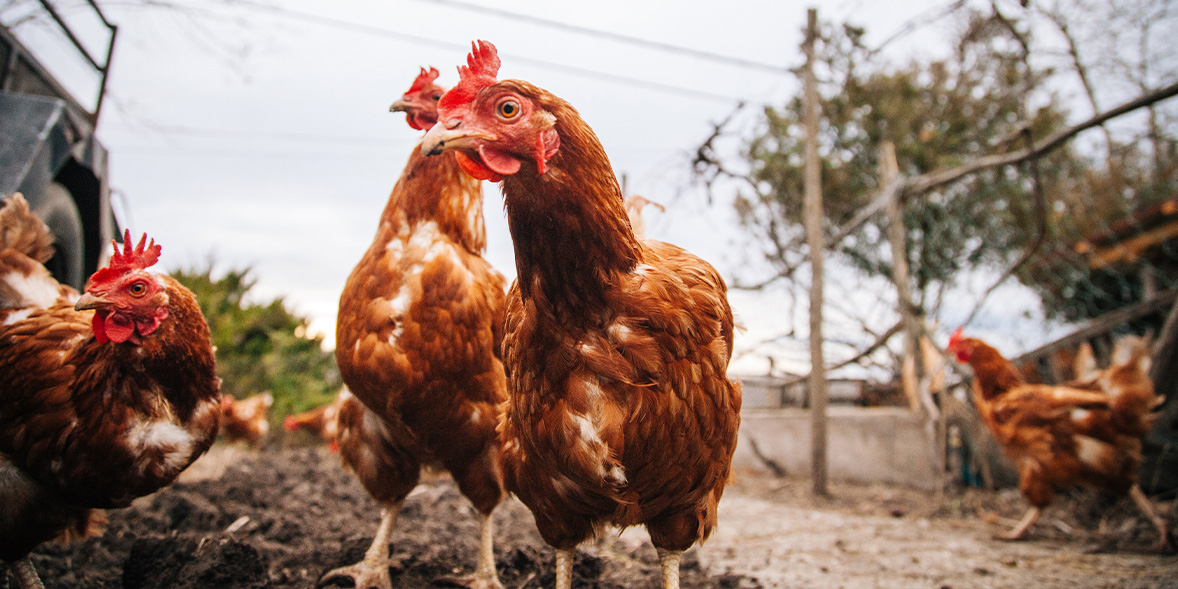Premium hens eggs can cost three times that of cheaper ones, but you don't necessarily need to splash out to get a decent egg.
We break down some common misconceptions, including if brown eggs are healthier than white and if expensive eggs are more nutritious, to help you navigate the egg aisle with confidence.
Live well, eat better and stay healthy – sign up to our free monthlyExpensive eggs aren't always more nutritious

Some eggs are priced higher because, according to the label, they're rich in vitamin D, protein or omega 3 fats.
However, when we looked closely we found that all eggs are good sources of these nutrients anyway, regardless of whether you splurge or save.
Some eggs are advertised as being rich in omega 3, because of the feed they're given, but the British Nutrition Foundation says an average medium egg provides around 70mg of omega 3 anyway.
- we reveal the top stand mixers for whipping up cakes, meringues and moreHigh-welfare eggs don't have to be expensive

High welfare doesn't have to mean a high price tag - we found free range eggs costing just 4p more per egg than their caged equivalents.
Here's the lowdown on what key welfare terms mean and typical costs:
Caged eggs. Barn eggs. Free range eggsOrganic eggs.Eggs are sized according to weight not physical size
 smallmediumlargevery large.
smallmediumlargevery large.
This refers to the eggs weight in its shell rather than its physical size, which may explain why it's possible to see some variation in a box, even if they're all classified as being the same size.
If you're following a recipe, most are standardised for large eggs so be aware of this if you're buying a mixed box.
Older recipe books (from before 1997) may refer to the old sizing system for eggs, which sized them from 0 to 7. In this scale, 0-1 is the largest size and 5-7 are small.
undefined - read our reviews of mechanical and digital kitchen scales from Argos, Salter and moreBright yellow yolk doesn't necessarily mean a better egg

Prevailing wisdom was that a bright yellow-orange yolk meant a healthier egg (and chicken), and pale, insipid ones were a bad sign.
However, this isn't a surefire way to tell a good egg. Yolk colour is determined by what the chickens eat and not necessarily because they are free range, organic or from fancy breeds.
Manufacturers can dictate yolk colour by tweaking the hens' diet, adding natural colourful ingredients such as marigold, grassmeal, capsicum or maize to their feed.
Although free range chickens will feed on a naturally varied diet of grasses, herbs and weeds, giving them golden yolks, if caged hens are fed carotenoid-rich feed, they, too, will have golden yolks.
- we tested cake tins from Argos, John Lewis, Lakeland, Le Creuset and more to find out which bake perfect cakesBrown eggs aren't healthier than white

In much the same way that you might think that brown sugar is healthier for you than white (it isn't), there's no truth in the suggestion that brown eggs are healthier than white.
They are often seen as being healthier and more 'rustic', but a brown shell doesn't make them any healthier than eggs with shells of other colours - and white eggs are a better welfare choice, too.
Hens that lay brown eggs can be more aggressive than white egg layers so they often have their beaks trimmed shortly after birth to stop them pecking each other - a welfare issue that the government is keen to phase out.
Shell colour is determined by a hen's breed (see table below) but it's the feed they feast on rather than the colour of the shell that determines flavour so don't feel you have to buy a fancy egg for your baking masterpiece.
undefinedWhat does the stamp on your eggs mean?

Getting the best eggs means knowing what you're buying. All eggs sold in the UK have to be marked with certain information, including:
Farming method. Country of origin.Farm ID.Lion Quality Mark.Best Before Date.The British Lion scheme has led to a drastic reduction in the presence of salmonella in UK eggs since it was introduced in 1998.
The Food Standards Agency says that British Lion scheme eggs are the only eggs that are safe to be consumed runny, or even raw, by vulnerable groups.
- watch our video to see what the experts think of using the 'float test'Where to get the cheapest eggs

When we looked, we found that all eggs have risen in price since October 2020 in all categories, with the cheapest options per egg rising from 10p to 18p for caged, 13p to 22.9p for barn eggs, 16.7p to 22p for free range and 28p to 45p for organic.
The best prices we found were at Aldi but shop around to make your money go further as deals regularly come up for eggs.
- we compare the price of everything from bread to toilet paper every month to reveal the cheapest supermarketsource https://www.which.co.uk/news/article/how-to-buy-the-best-eggs-aXQUR0p17F4N
